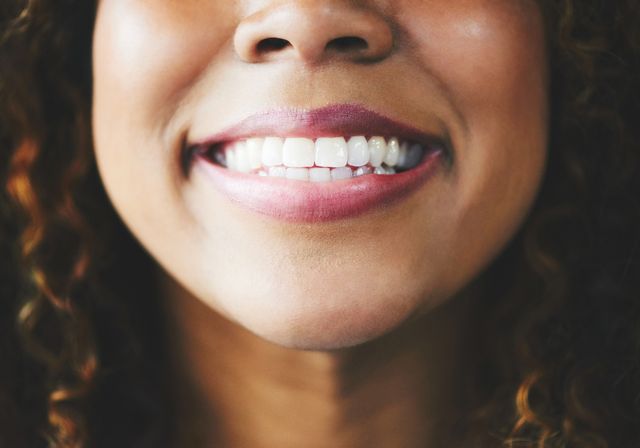Dental discoloration is a common problem that many individuals face. It can lead to inhibited confidence and decreased social interactions due to embarrassment or self-consciousness about one’s appearance.
The causes of tooth discoloration are multifaceted, ranging from dietary habits to the natural aging process. But the type of stains you form on your smile can impact potential solutions that can brighten your smile.

Causes of Tooth Discoloration
One major cause of discolored teeth is food and drink consumption. Drinks like coffee, tea, and red wine contain intense color pigments called chromogens that attach to the enamel of your teeth, leading to staining over time.
Additionally, tobacco use contributes significantly towards tooth discoloration as it contains tar, which is naturally dark, and nicotine, which turns yellowish when mixed with oxygen. As we age, our teeth naturally become less white due to thinning enamel. This exposes more of the underlying dentin layer, which has a yellower tone than the outer shell of your teeth.
Trauma can also result in darker dentin being laid down as a response mechanism during healing, causing a noticeable color change in affected areas. Another significant factor contributing to dental discoloration is medication usage. Certain antihistamines, antipsychotics, and high blood pressure medications have been found to darken teeth as a side effect.
Children exposed at an early age (either prenatally or during infancy) to antibiotics such as tetracycline and doxycycline may experience adult tooth discoloration later in life. If you suffer from any of these types of dental discoloration, you should talk to your cosmetic dentist to find a way to get rid of these tooth stains.
Cosmetic Dentistry Solutions for Discolored Teeth
If you suffer from dental discoloration, you may feel self-conscious and dissatisfied with the appearance of your smile. Fortunately, several cosmetic dentistry solutions available at your dentist’s office can treat discolored teeth effectively.
- Professional Teeth Whitening: This method offers many benefits compared to over-the-counter options including personalized treatment plans resulting in even results with reduced gum sensitivity issues often associated with generic products from drug stores.
- Porcelain Veneers: For those whose stains don’t respond well to traditional whitening methods, porcelain veneers can be a viable solution. These thin shells of dental ceramic cover the front and sides of your teeth, providing a durable, stain-resistant finish.
- Dental Bonding: This method involves the application of a composite resin that is color-matched to the desired shade and molded onto your tooth structure. It provides an economical option for those not ready to commit to permanent solutions.
Choosing the Right Cosmetic Dental Treatment
Not all discoloration types respond adequately to teeth whitening treatments. For instance, yellow stains bleach well, while brown ones may not respond as effectively. Gray tones might not bleach at all.
Furthermore, restorative dental work such as caps, veneers, or fillings won’t whiten with these treatments, nor will discoloration caused by medication usage or trauma. Therefore, you ought to have an in-depth discussion with your dentist before deciding on any treatment plan. This conversation can guide you toward the most effective options based on your specific needs.
